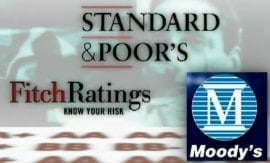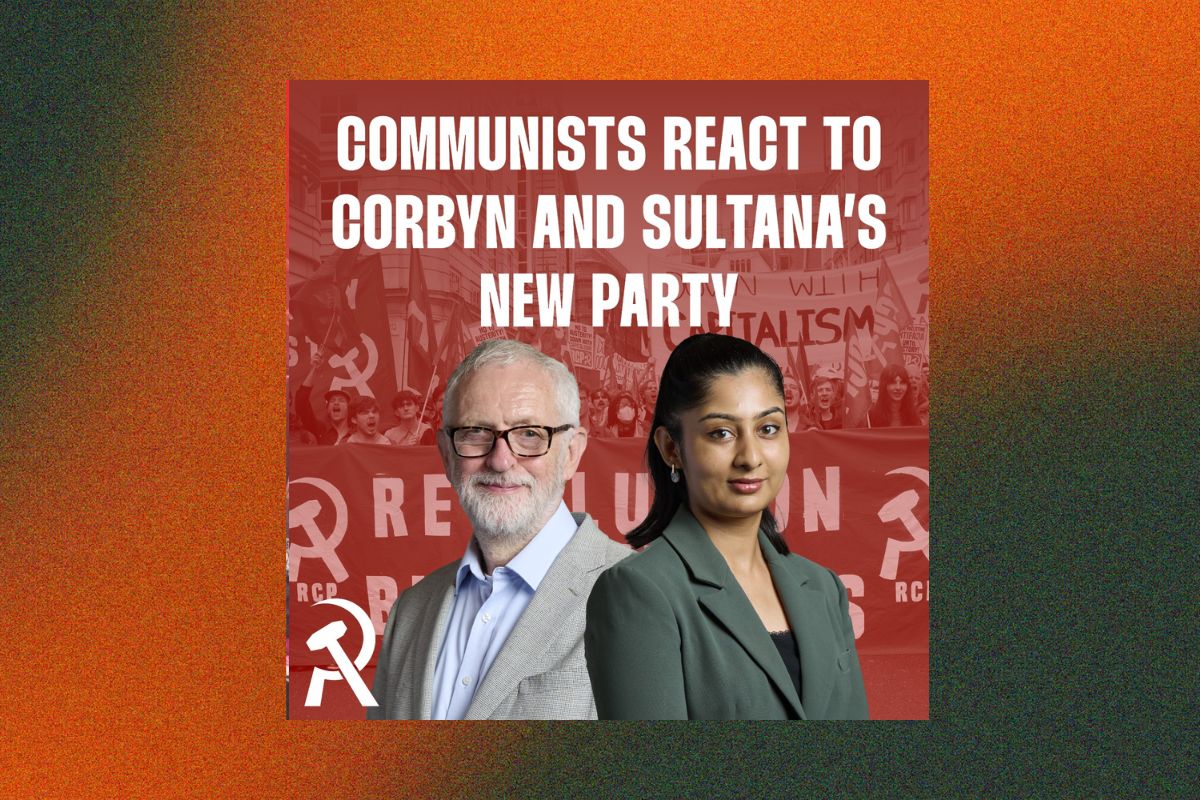The New Year will be ringing in not joy but woe for working class people. It is the year that the cuts really begin to bite. It is the year that many people lose their jobs. It is the year that, in the words of Nick Clegg, “painful” Universal Benefits are introduced. It is the year that many lose their housing benefit and become homeless. It is the year the capitalist crisis deepens in Europe, with Spain, Italy and France following in the footsteps of Greece. Britain, however, is not far behind.
The New Year will be ringing in not joy but woe for working class people. It is the year that the cuts really begin to bite. It is the year that many people lose their jobs. It is the year that, in the words of Nick Clegg, “painful” Universal Benefits are introduced. It is the year that many lose their housing benefit and become homeless. It is the year the capitalist crisis deepens in Europe, with Spain, Italy and France following in the footsteps of Greece. Britain, however, is not far behind.
In 2010 the Tory Coalition were ringing the bells but now they are wringing their hands. George Osborne, the Chancellor, has been forced to admit that his financial targets are all at sea and the austerity will now need to be officially extended until 2018, three years longer than originally intended.
The deterioration of the British economy has now resulted in Britain being put on “negative” warnings by the Rating Agencies, with the growing certainty that Britain will shortly be stripped of its triple-A credit rating. This was the shibbolith of the Coalition, the cornerstone of its faith. Britain will now lose its triple-A credit rating as it heads for a triple-dip recession.
The austerity cuts have been dictated by the capitalist crisis but the medicine threatens to kill the patient. Austerity has served to cut demand and killed off any incentives to produce or invest. As government expenditure continues to fall, spending on infrastructure, despite desperate announcements by ministers, is also tumbling. Recent figures show that infrastructure spending across the UK had declined 11.3% in the past 12 months. While the government had hoped that pension funds would invest £20bn over the next decade, and £2bn by early 2013, a year of talks has so far raised a mere £700m. Regarding the availability of credit, between March 2009 and September 2012, the supply of credit by UK banks has contracted by 19.1%.
Public sector
The 250,000 job losses in the public sector is to be followed by a further 700,000 by 2018. The fear of job insecurity and a continuing wage freeze (in reality wage cuts), while transport, energy and other costs rise dramatically, has reduced spending. So while corporations are not investing, consumers are not spending either. This acts as a downward spiral and the economy nose-dives.
“I think there is a ‘new normal’”, states Cridland, head of the CBI. Growth, according to the CBI, in 2012 will be zero, while in 2013 it is forecast to pick up to a mere 1.4%. But even this is over optimistic. British manufacturing industry is set to shrink in 2012 by 1.5% amid the toughest trading conditions for three years, according to the Engineering Employers’ Federation (EFF). Manufacturing output slumped by 2.1% in the 12 months to October, according to the Office for National Statistics, much worse than expected. Official figures indicate that UK’s trade deficit had widened in October, dashing all hopes that the economy would be able to trade itself out of trouble.
Once again, the Office for Budget Responsibility stated that the economy was likely to shrink in the final quarter and in 2012 as a whole. It slashed its forecasts for growth for each of the next five years. Even then, it has failed to factor in a new major slump internationally, or the break-up of the eurozone. In reality we are faced with years and even decades of austerity. According to Martin Wolf, the key economic strategist at the Financial Times, things have turned NASTY – Nightmare of Austerity and Stagflationary Years.
Slump
No wonder that support for the Coalition has slumped. The splits and divisions of Europe are threatening to plunge the Conservative Party into a new round of blood letting. The rise of UKIP threatens to split the Tory vote, as it syphons off disenchanted Tory voters. Boris Johnson is keen to cash in on these difficulties as he positions himself for a future leadership challenge. On the other hand, the fate of the Lib Dems, despite their desperate attempts to distance themselves from the Tories, is bound to the fate of the Coalition. On this basis, it is clear that the Lib Dems are heading for electoral extinction in the next general election, crushed between the millstones of Labour and the Tories. They are even trailing UKIP in the opinion polls.
This perspective was revealed in the string of by-election results. The latest, the Rotherham by-election in November, was the worst election result on record for the Lib Dems. Nick Clegg’s party secured only 451 votes, as they came in eighth place, behind the BNP, an Independent and the English Democrats, to lose their deposit. They also lost their deposit in Croydon North, where they finished in fourth position. In Middlesbrough they came third behind UKIP, but there was a collapse in support for both Coalition parties, which between them took just 16% of the vote compared to 35% in 2010.
Labour
Labour swept the board and has a significant lead in the polls. Those who attempted to pose as a left “alternative” to Labour were once again humiliated. The TUSC candidate in Rotherham managed to come ninth with 1.22% of the vote. In Manchester Central, TUSC came tenth with 220 votes (1.32%), behind the Pirate Party (!) and not much more than the Monster Raving Looney Party.
Of course, the Labour programme is not what is required to solve the problems of the working class. It is advocating “respectable capitalism”, to use the words of Ed Miliband. Nevertheless, it is up to the trade unions, who are affliliated to the party, to take back the party from the careerists and carpetbaggers. UNITE is absolutely correct in sending trade unionists into the party. This, however, must go hand in hand with the fight for socialist policies. Only a bold socialist programme to take over the banks and key industries, under workers’ control and management, can mean the planning of the economy in the interests of working people and not the millionaire speculators.






